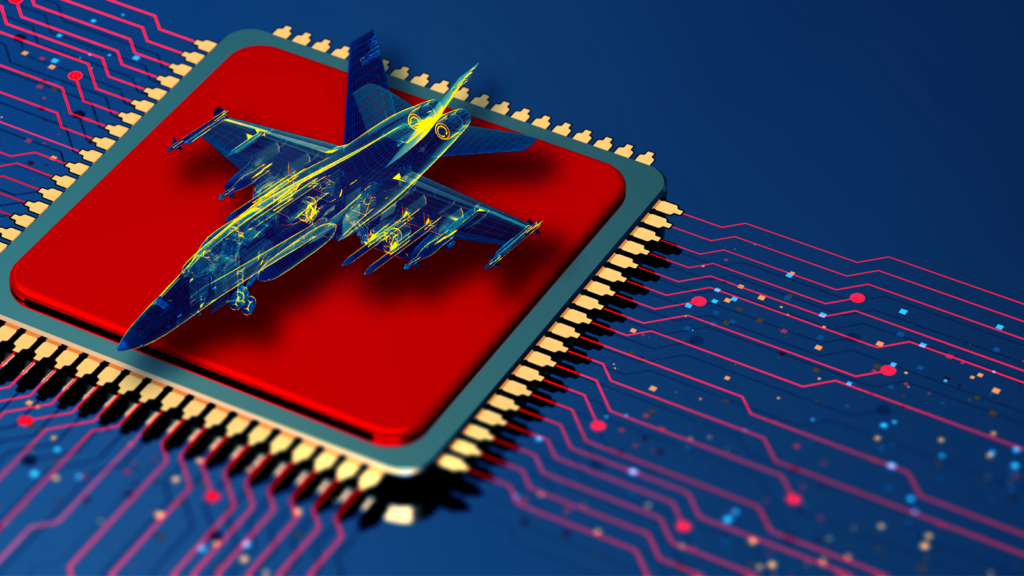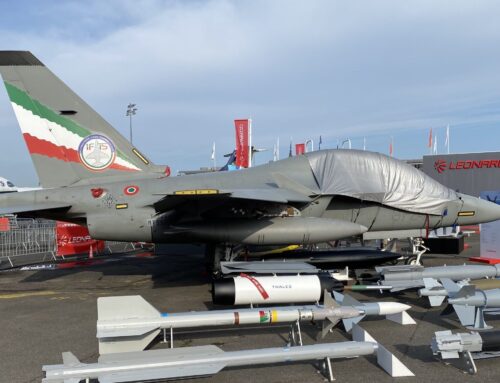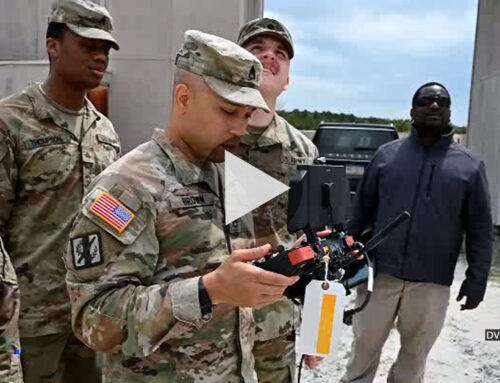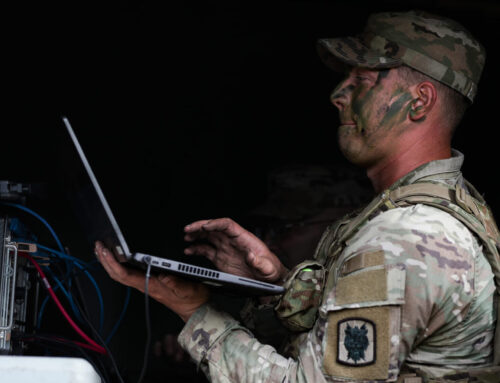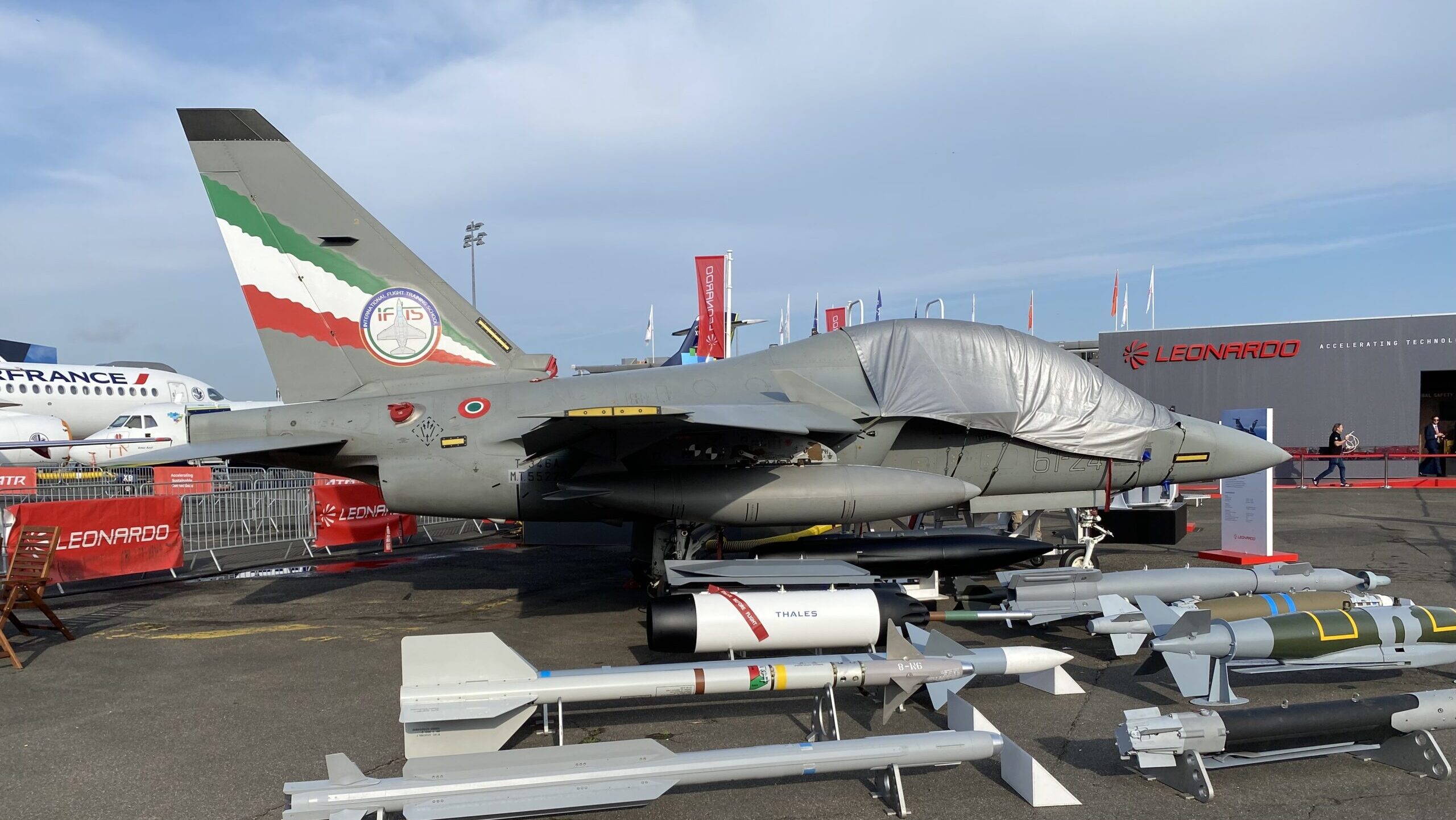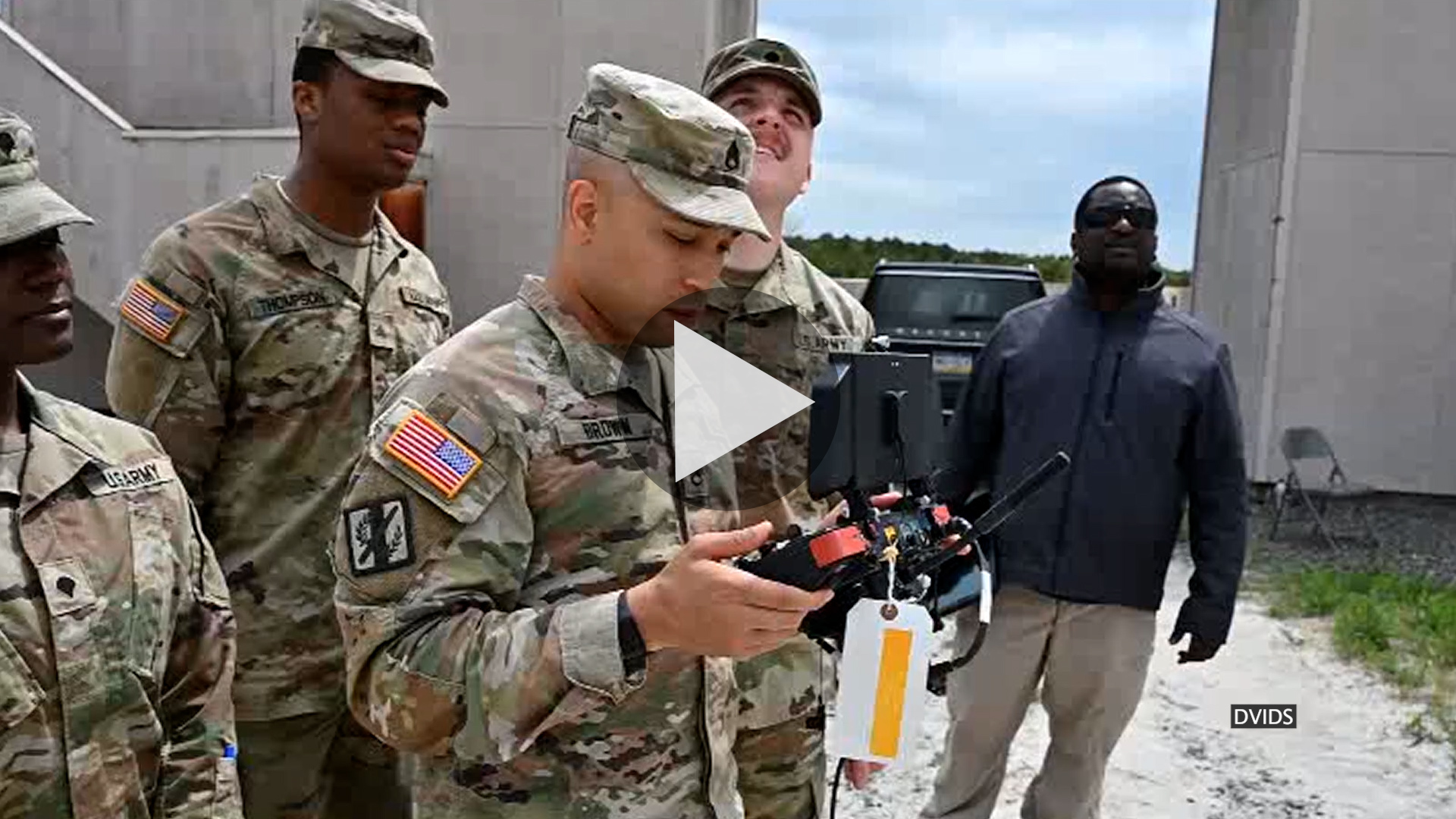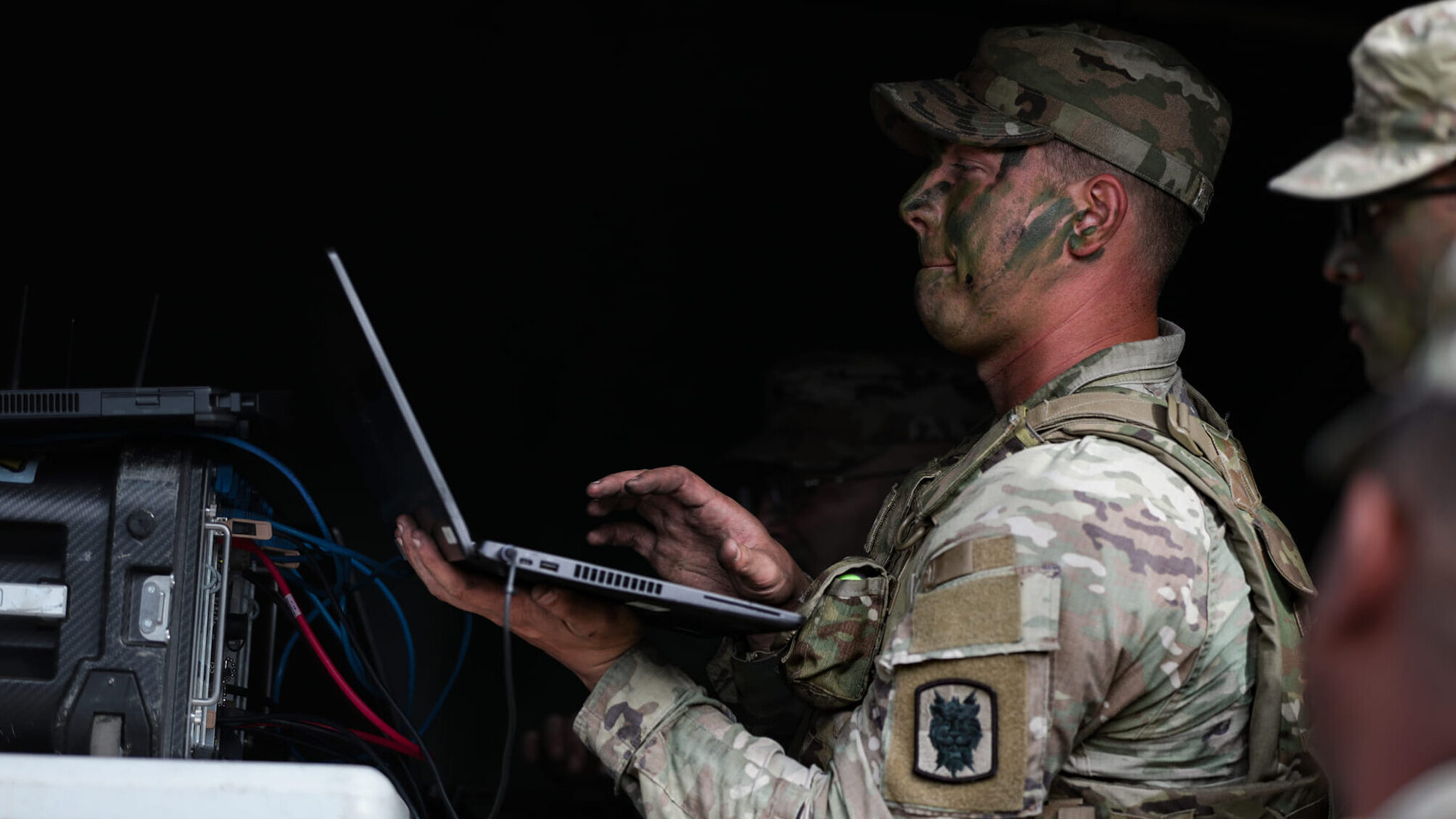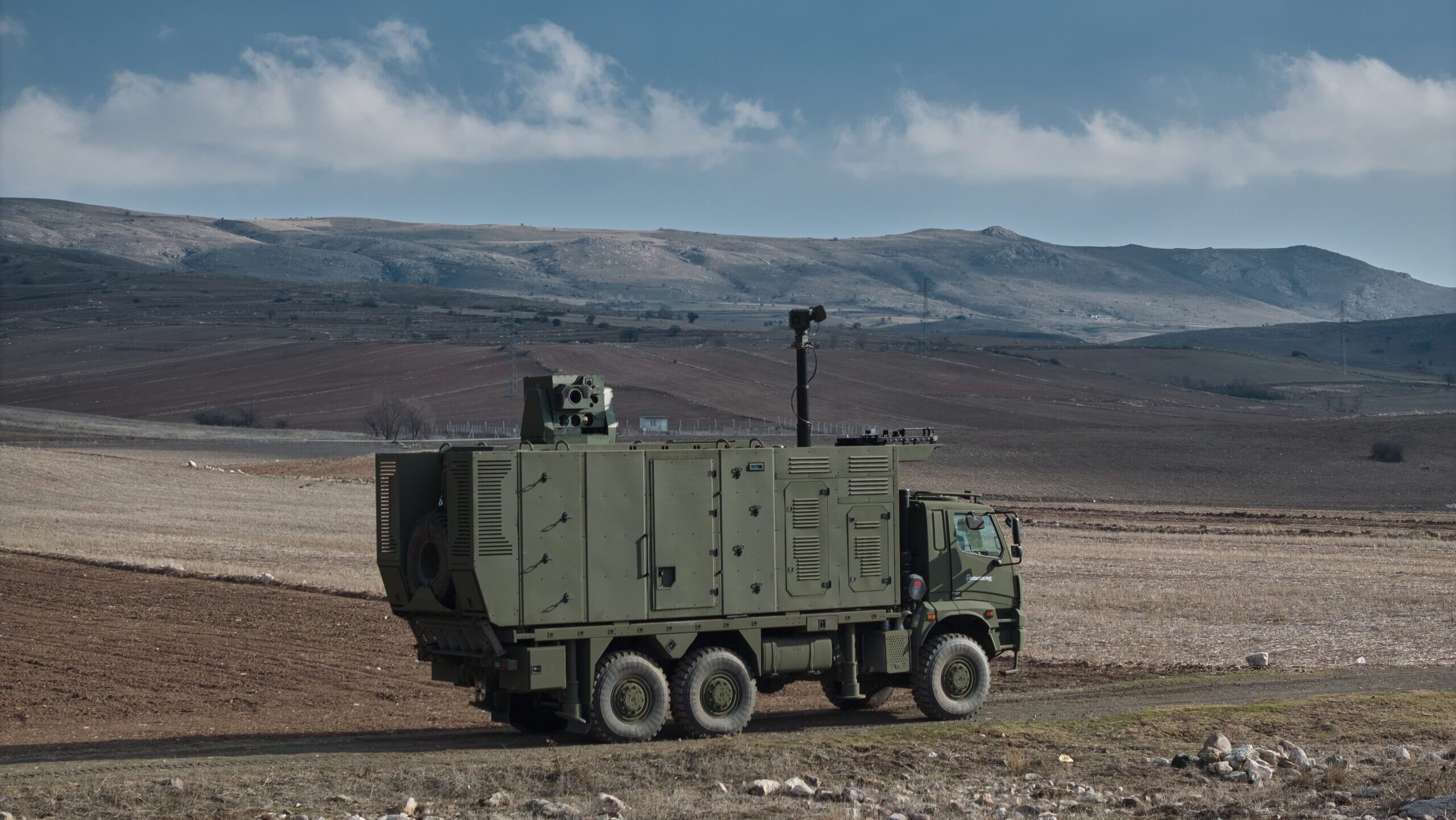A wireframe fighter jet sits on a computer chip. (Getty images / Breaking Defense graphic)
WASHINGTON — NATO’s Defense Innovation Accelerator (DIANA) has announced its new set of five defense and security challenges for the second year of its six-month-long accelerator program aimed at helping start-ups from across the alliance develop dual-use technologies to respond to critical security challenges.
According to a July 1 announcement, the alliance wants better tech to tackle the subjects of energy and power; data and information security; sensing and surveillance; human health and performance; and critical infrastructure and logistics.
“For all these challenges, innovators are encouraged to consider how their solutions can enhance resilience; develop the potential of space for discovery and innovation; and support environmentally friendly technologies and practices,” the NATO announcement said.
RELATED: Inside NATO’s plans to rev up an ‘innovation engine’ for dual-use technologies
“New deep technologies are the very point where innovation and security meet, and their development is on the rise in Estonia and worldwide,” Tiit Riisalo, the minister of Economic Affairs and Information Technology in Estonia, which hosts a DIANA regional hub, said in a separate press release. “I urge start-ups to get involved in DIANA, since it opens a door to new opportunities. The solutions that emerge from entrepreneurs’ new ideas will boost economic growth, and the potential of those solutions in both the civil and defence fields will contribute to security and innovation in society as a whole.”
After the pilot year of the accelerator program, Estonian Defense Minister Hanno Pevkur said the alliance had received “increditly positive feedback” and would continue for another year, calling the program an “important catalyst for innovation.”
The companies that are admitted to the accelerator program will receive €100,000 ($108,300) in funding, with the most qualified companies receiving up to €300,000, or around $325,000. Those selected for the program will also have access to over 180 test centers and a network of mentors across NATO. Beyond Estonia, the accelerator program has sites in Denmark, the US and Italy.
Forty-four companies were accepted into the program last year, from 19 countries, and have “already made a big leap in technology development, gained influential new customers and raised investments,” Kadri Tammai, the head of the DIANA Estonia Accelerator at Tehnopol, said in the Estonian government’s release.
Companies looking to apply should submit a five-page form that outlines their technology solution, emphasizing its relevance to challenges in space, resilience and sustainability, according to the Estonian release.
Applications are open now and will close on August 9, with entrants starting the program in January of next year. All dual-use technology companies registered in NATO member countries can apply.


